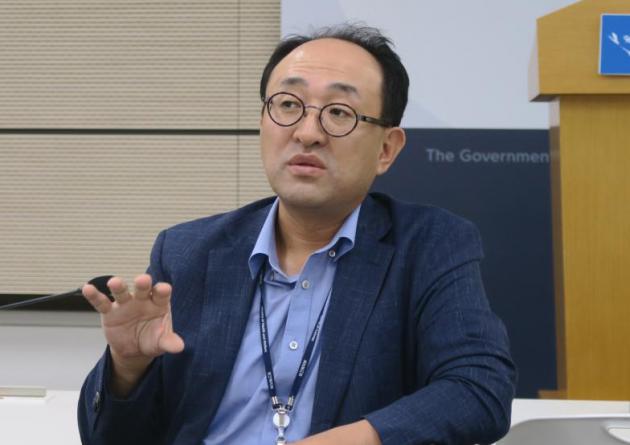President Moon Jae-in’s policy to drastically expand health insurance coverage, nicknamed the “Mooncare,” has hit a snag due to a controversy over the government’s plan to set limits on the aggregate insurance payments a year.
The medical community made clear its opposition to the idea after Minister of Health and Welfare Park Neung-hoo said the government was reviewing to adopt a global budget in the healthcare system as part of the policy.
If enforced, a global budget will have the National Health Insurance Service set an aggregate amount of medical payments for doctors’ services.
The controversy started off at a parliamentary audit of the ministry on Oct. 13. Rep. Kim Sang-hee of the ruling Democratic Party pointed out that pushing ahead with the Moon Jae-in care will increase the government’s spending on healthcare, adding that the government should take note of Taiwan’s global budget system.
In response, Park said, “The government is reviewing measures to overhaul the health insurance payment system including adopting a global budget.”
Park’s comments triggered stiff resistance from the medical industry.
“The medical industry has repeatedly warned against financing difficulties due to the introduction of the Moon Jae-in care,” said the executive board the Korean Medical Association, a group of Korean doctors, in a statement on Tuesday. “The enforcement of the global budget system will hurt the quality of medical service and damage the health of Korean people.”
The KMA’s board members also threatened to stage a massive rally to force out Park from the minister’s post and fight against the government, together with the KMA’s emergency response committee. “We urge the health and welfare ministry and the ruling party to heed our warning and immediately stop reviewing the global budget system,” they said.
Later in the day, the Korea Medical Clinic Association also demanded the government to cancel its global budget review and the Moon Jae-in care as well.
The KMCA said Minister Park’s comments on global budget runs counter to the ministry’s previous stance that additional financing plans for the Moon Jae-in care had been carefully mapped out.
“In Germany that adopted the global budget, rising medical costs are out of control, with medical insurance unions collecting additional insurance premiums and the government expanding state subsidies,” the KMCA statement said. “In Taiwan, too, the global budget could not reduce medical expenses. So, they additionally adopted a national health insurance to enhance the government’s support.”
Faced with stiff opposition, the health and welfare ministry explained that Park’s comments did not mean the government would immediately adopt the global budget scheme. It said the government said it would “review” the issue because a lawmaker pointed it out during the parliamentary audit.

“The ministry does not have any detailed plan. The medical industry does not have to take it seriously,” said Chung Tong-ryung정통령, director of the ministry’s Health Insurance Benefits Division meeting with reporters on Wednesday. “When a lawmaker raises, the government should review them thoroughly and report back to the National Assembly.”
Chung said the minister’s comments at the parliamentary inspection were also about principles, adding that the government has not reviewed adopting the system. “It’s not something that we can do it right now,” he said.
He also commented on the possibility of revising or supplementing the current fee-for-service system, which gives higher pay to physicians who provide a larger number of treatments.
Chung said the government’s medical reimbursement system should take a different approach to hospitals and medical clinics. For hospitals, the government had earlier announced that it would expand reimbursement to cover at least 200 new additional diagnoses.
“Each payment system has different characteristics. How we should run the system and in which direction should be discussed from a different perspective,” he said.
Chung noted that Korea has already adopted refined DRG (diagnosis-related groups) payment system, focusing more on managing payments for uninsured medical services and raising predictability on medical expenses than on limiting the number of hospital stays. The government will keep running the refined DRG system, he added.
“We could overhaul the payment system itself, in which we provide more payment to medical institutions that treat patients that fit their main functions and less for those which treat irrelevant patients,” he went on to say.

